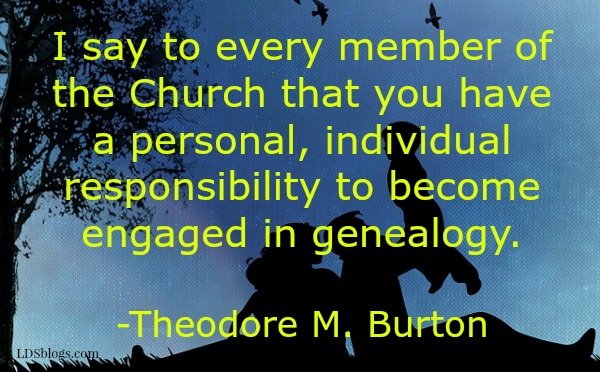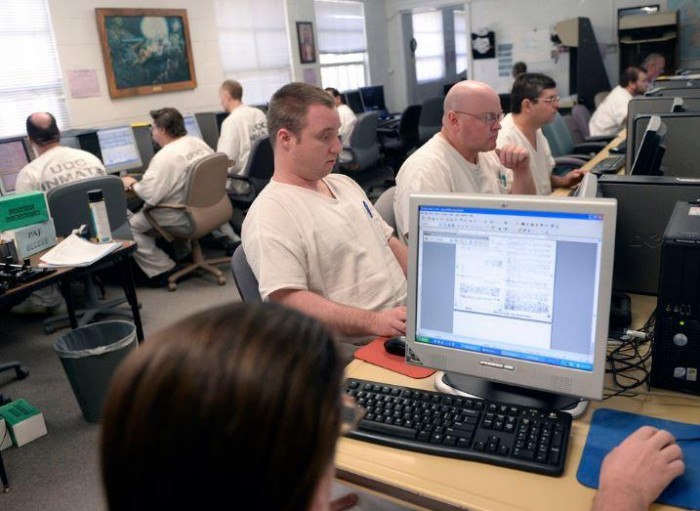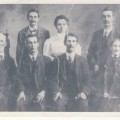Utah inmates have a rather unusual option in the work program lineup. Genealogy.
The Church of Jesus Christ of Latter-day Saints partners with the Utah prison system to train inmates to complete family history projects. The Church’s first Family History Center opened at the Utah State Prison 20 years ago. There are four centers at the prison and one at the Gunnison correctional facility.
Inmates index digital copies of census, vital (birth, death, marriage), probate and church records. Some inmates have become arbitrators of indexed records, meaning they double check the work of other indexers.
The Salt Lake Tribune reported that “Inmates who volunteered at Utah State Prison centers last year indexed more than 2 million records. They also put in approximately 50,000 hours of personal family research.”
Wayne Parker, director of LDS Correctional Services for Salt Lake and Summit counties spoke of its transformational benefits to the inmates.
“Everybody desires to have an identity and know who they are,” he said. “When men and women start to investigate their own families and doing investigating for a general pool of names, there is much more desire to reconnect with family and repair some bridges that might have been damaged over the years. It helps them to connect and fortifies their own identities, gives them a place in the scheme of things.”
One example: Parker said an inmate who worked in the Family History Center at the Wasatch unit set a goal of completing college after discovering through family research that his great-grandmother had received a degree in the 1920s, a time when few women sought higher education.
William J. Hopkins is another inmate who appreciates the programs. He spends two to three hours daily arbitrating indexed records, tutoring other inmates on how to do family research, and working on his own family history. Of his ancestors, Hopkins said, “You understand the hardships they went through and get to feel for them.”
Working on family history projects also enables some inmates to gain basic computers skills, and get a sense of helping others.
Jed Dunford, LDS Correctional Services coordinator recognizes that “They start thinking more in terms of others than themselves and that, we find, is a very beneficial perspective for inmates. The inmates have a reason to look forward to the day instead of spending excessive time in their cells and with other inmates and bemoaning their situation in life. They have a better attitude, have a better perspective on life and are more motivated to change.”
For more information on FREE ways everyone can become involved with family history, check out FamilySearch.
Think genealogy is too hard to do or takes too long to find someone? Take the 5 minute genealogy challenge.
https://www.lds.org/media-library/video/2011-05-01-episode-1-quick-start?lang=eng
About Delisa Hargrove
I am a member of The Church of Jesus Christ of Latter-day Saints. I have moved 64 times and have not tired of experiencing this beautiful earth! I love the people, languages, histories/anthropologies, & especially religious cultures of the world. My life long passion is the study & searching out of religious symbolism, specifically related to ancient & modern temples. My husband Anthony and I love our bulldog Stig, adventures, traveling, movies, motorcycling, and time with friends and family.







